- Home
- Gerald Hammond
Sting in the Tail Page 10
Sting in the Tail Read online
Page 10
The feeding of the dogs was already well under way. I sent Henry to relax in the sitting room while I attended to my four charges. I paused at Clarence’s kennel and received an enthusiastic greeting. Evidently his tail was on the mend, and a day in secure accommodation and the company of other dogs had done wonders for his morale.
I prepared to help with the other chores, only to be sent by Beth to join Henry while she resumed what she regarded as her proper duties. I washed, changed my boots, brushed my hair and did as I was told. I found that there was a bright log fire burning and Henry was stretched out, his body in one of the wing-chairs and his long legs spanning half the room. I sat down opposite and leaned back. Henry was snoring. I was wondering how Isobel ever managed to sleep through such a din, when a day in the concentrated fresh air overcame me and I also slipped into sleep. I had never previously been a daytime sleeper, but since my illness, and with Henry’s example to follow, I was liable to doze off at any moment of relaxation.
The same fresh air had only made Beth rosy. Despite the hard work and the occupational hazards, she smelled sweet when she woke me half an hour later with a mug of soup. Henry I noticed, was already sitting up with a whisky in his hand.
‘We’ve all had broth as a restorative and warmer-upper,’ Beth said. ‘I kept yours for you. The work’s finished except for the pups’ last feed, and that’s already made up. Dinner’s on and I’ll take a sherry. Isobel’s just coming.’
‘Isobel’s here and could murder a g-and-t,’ said Isobel. Her round face in its unsuitable spectacles came round the door. ‘How did you get on? Was Henry useful?’
I was only coming to slowly. As if in answer to his wife’s question, Henry made himself very useful, dispensing drinks and giving an account of our day. By the time I had my wits about me, I had enjoyed the soup and accepted a Guinness, and Hannah had joined us, looking prettier than ever in a dress which Beth had never liked. She asked for an orange squash and went to sit quietly, managing to appear slightly withdrawn from the circle.
‘Did you find out anything useful?’ Beth asked. ‘Mr Cunningham is trying to find out what really happened to Clarence,’ she explained.
I glanced quickly at Hannah to see if I could detect any expression, but she looked no more than mildly interested.
I let Henry give what was almost a word-by-word account of our enquiries, and I added what I had learned from Mrs Bell in his absence.
‘You’ve collected a ragbag of information about people,’ Beth said, ‘but I don’t see that it takes you much nearer to getting rid of what’s worrying you.’
‘It doesn’t,’ I said. My voice was still thick from sleep so I took a pull at my stout. ‘I’d be satisfied if I could assure myself that we don’t have another nutter on our hands. From what we know so far, there aren’t even any likely cranks in the neighbourhood, unless you count Mr and Mrs Bassett, who seem to have been at their health-food shop that day, so what happened was probably a one-off. What bothers me is the recent spate of attacks on horses. The original horse-slasher set off several copycats. Clarence hasn’t got into the papers, not yet, but enough people must know about the incident and, of course, if the SSPCA take Charlie to court . . .’
I had forgotten about Hannah. She sat forward suddenly. ‘They won’t do anything to Dad,’ she said firmly.
‘Of course, we hope not—’ Beth began.
‘They wouldn’t. I wouldn’t let them.’
I tried very hard not to sound patronizing. ‘There might not be an awful lot that you could do about it.’
‘I could tell them that I did it. They’d believe that. It’s what most of them are thinking already, just because I get fed up at having people walk all over me. I know that you don’t think anything of the sort or you wouldn’t leave me alone with your dogs all the time.’
‘That’s right,’ I said. ‘But, Hannah, you’ll only make things worse if you confess to something you haven’t done.’
‘Dad said that we’ll have to be careful or they might take Clarence away from us.’
There was a moment of worried silence. Had Charlie been warning his daughter not to damage any more dogs? It was impossible not to wonder.
Isobel looked at me. ‘Talking about being careful, you’ll have to watch what you say. You can’t ask too many questions without spreading the news,’ she said, ‘which is exactly what you don’t want.’
I glanced at the clock. Evidently Henry and Isobel would be staying for a meal or Isobel would by now have left to begin preparations for their own dinner. ‘We’ll have to tread warily,’ I said. ‘All of us. But I’m not going to stop asking questions.’
‘There’s one thing you should know,’ Beth said. ‘This afternoon, between other things, Hannah and I took Clarence for a short walk on the lead. He’s a very clean dog and he doesn’t like to do it in his run. The butcher’s van was early and I was running a bit late.’
‘Not the same van that goes to Foleyburn?’ Isobel said.
‘No. I’ve seen the other one when I’ve gone over to help you on the shoot. But it’s the same firm, same livery and make. I stopped the van outside the gates, which is what I like to do, because if he comes up the drive the smell of all that fresh meat sends some of the dogs wild. The point is that I couldn’t get Clarence within yards and yards of the van. I had to leave him with Hannah while I went to buy meat.’
Henry sat up suddenly. ‘And according to Mrs Bell, nobody heard the butcher’s van arrive because O’Toole was running his circular saw. So the butcher opened up ready for business which was slow coming. He had his knives and cleaver handy. If a spaniel made a determined attempt to carry off a choice cut, he might make a sudden swipe with the first thing to hand.’
‘But that’s Mr McCulloch,’ Hannah said. ‘He wouldn’t have done that. He acts very grumpy but he’s really very kind. He gives me bones for Clarence.’
‘He gives them to you, not to Clarence,’ Beth pointed out.
‘I don’t see the difference,’ Hannah said stubbornly.
‘If I can intercept him on Friday I’ll buy a couple of chops off him and see what I make of him,’ I said. ‘But I don’t think we need read too much into Clarence’s reaction. I’ve known more than one dog that made a wide detour around butchers’ vans. The reason is simple. Butchers’ van-drivers get so fed up with dogs coming round trying to steal meat that they get to be quite free with a kick or a stick. The motto is “Put the boot in first and if an angry owner turns up apologize later”.’
‘From which,’ said Henry, ‘it would be only a small step to “Swipe with whatever’s handy and hide the evidence afterwards”. As you say, we’d better meet up with the man. If we took a dog along, we might get a clue as to how he reacts.’
Beth looked aghast at the idea of one of the dogs being put at the mercy of an infuriated butcher. ‘We’d be very circumspect,’ I said quickly. ‘Clarence seems to have got over the worst of the shock. Perhaps we could start taking him around with us to see how he reacts to people and places.’
‘You’ll keep him in the Land Rover if he’s too nervous?’ Beth asked.
‘Yes, of course.’
‘You promise?’ Hannah said.
‘Cross my heart. Henry, you said “we”. Are you coming with me again?’
‘Whenever you wish,’ Henry said.
‘Glad to have you aboard,’ I replied.
‘Haven’t we gone polite all of a sudden!’ Isobel said. ‘I could use another drink but I suppose I’ll have to wait until I’m asked.’
Chapter Five
Henry, who loved a mystery and was always grateful for any break in the monotony of retirement, had no intention of being left behind. He rolled up in the morning before I had finished my early breakfast. He even helped me to help Beth and Hannah get through the early chores. Hannah had settled into the kennels’ routine as though she had been born to it, and the dogs seemed to welcome her. Scoter, a retired brood bitch awaiting a good shooting home
for her twilight years, accepted from her fingers and even swallowed the pills which she usually tried to hide in her cheek until our backs were turned.
By ten o’clock we were on the road. Clarence, looking no more than interested and alert, was in the back of the Land Rover, together with the two cocker spaniels that I would be running in the puppy stake. The brief spell of fine weather had lost itself in a night which had produced a deep frost. Humid air was now creeping up from the sea, making fog wherever it met the cold of the land and laying down a sparkling carpet of frost which was instantly turned back into dampness on the roadway by the warm tyres.
The wipers could clear the windscreen but they could not clear the fog. The headlamps only threw up the whiteness. ‘Not the ideal day for driving a Land Rover,’ I said to Henry.
‘Or anything else except a submarine or a train on the London Underground, I should think.’
We groped our way across the bridge. As we turned away from the sea and then away from the estuary, the mist thinned. We ran through the village in no more than a haze of damp.
I stopped at the shed to take feed on board. One of the nearby farmers had left a sack by the door. We had a standing arrangement that any spoiled potatoes, tail corn or waste foodstuff of any kind would be left there for the ducks, to be paid for eventually in kind. We heaved it aboard.
‘Ducks first?’ Henry said.
I agreed, and not just because of the extra sack of feed. If somebody was poaching rabbits, he might not expect us so early on such a day. By going clockwise when we usually travelled withershins, and with the mist to damp down sight and sound, we might cut off his retreat. We might not grudge him a rabbit or two, provided that he was leaving the ducks and pheasants alone, but there was always the risk of the odd bird injuring itself in one of his snares. Anyway, it would be interesting to get a look at him, if only because he might have seen, or even committed, the assault on Clarence.
A dozen duck lifted off the dam as we arrived. They circled once, but as we started to put out the food they swung away and vanished. They would be back at dusk, bringing their friends. Duck feed at night, most of them flying to a different roost by day.
We set out again without wasting time. As I pointed out to Henry, if the poacher was out and about he would probably know by now that we were on the way. The hill was very steep at this end, which was the reason why Angus usually circled anticlockwise and descended where we were trying to climb. I put the Land Rover at the slope and we bounced and skidded on the wet grass. A Land Rover on dumper-truck tyres will go anywhere, but this was Angus’s road transport and even in four-wheel drive his radials spun and slithered.
Halfway up, Henry suddenly said, ‘I can see somebody. He’s going down behind the hedge on our right.’
I chose my place and span the wheel, keeping the vehicle moving so that centrifugal force would help to keep us upright. For a moment, I thought that we were going to roll; but we came round, and an instant later I had lifted my foot and was fighting to slow down where before I had fought to keep going.
‘You must have been murder in a tank,’ Henry said in a hollow voice.
‘I was Poor Bloody Infantry,’ I told him. ‘They didn’t give us tanks. Hold on to your hat.’
‘They knew what they were doing,’ Henry said.
The hill levelled out for a few yards at the bottom. I slammed on the brakes as an alternative to ploughing into another hedge. The Land Rover slewed round and stopped, its square bonnet pointing back up the hill and its squarer tailgate almost in the hedge. Henry’s lips were moving.
‘Never mind that just now,’ I said. ‘The time for prayers is past. Where is he?’
‘Near the junction of the hedges,’ Henry said. ‘I think he’s sitting tight. He knows he can’t outrun us.’
I didn’t know any such thing. I wasn’t at all sure that I could force the Land Rover up the hill again now that the treads of its tyres were filled with wet dung, but if our quarry was prepared to abandon hope I was not going to complain. ‘Move into the driver’s seat,’ I said.
‘I wouldn’t even try to get this thing up the hill if you paid me.’
‘He doesn’t know that. So let him think that we can chase him up if he moves. If I get hold of him, hop out and bring Clarence to join us.’
‘Got you,’ Henry said.
There was a gate a few yards away in the wrong direction. Rather than try to force my way through hedges which had been allowed to thicken at the base for the sake of the wildlife, I headed that way, climbed the gate which had been wired shut and turned back towards another gate some fifty yards away. This one was standing open, and on the other side, squatting in the junction of the two hedges, was a gangling man in his thirties. He had floppy brown hair and spaniel’s eyes. He looked so gentle that it was difficult to imagine him breaking a rabbit’s neck let alone paunching it, but his hands were red-stained. His face was familiar from his days with the beaters.
‘Strichen?’ I said, guessing.
‘Strachan,’ he admitted gloomily.
‘Strachan, then. Does the oil industry pay so badly that you have to come poaching?’
He flushed. I thought that he was going to deny the charge although the haversack over his shoulder looked heavy and had been stained with blood. In the end, he decided in favour of frankness and began to unbuckle the straps of his haversack. ‘It’s only for a bit of fun,’ he said. ‘The Broras enjoy a rabbit pie, so I try to snare a few for them whenever I’m at home. Maggie O’Toole’s grateful for one for the dog now and again, and our cat won’t eat anything else. Usually I stick to the rough ground at the back of the cottages – you know where I mean? – but I seem to have cleared that bit for the moment.’ He held open the bag, exhibiting some fur but definitely no feathers.
‘Do the pheasants never get caught up in your snares?’
‘It hasn’t happened yet.’
‘And you visit the snares every day without fail?’
‘When I’m here. If I’m going offshore, I lift them.’ There was a pause. He looked ready to weep. ‘What are you going to do?’
It dawned on me for the first time that he was expecting me to call the police and hand him over as a poacher caught literally red-handed. Depending on the vintage of whatever he had been reading on the subject, he might even be expecting to be transported. And I decided that I might as well capitalize on his naïvety. ‘That depends on how helpful you can be,’ I said sternly. ‘Were you on the hill on the morning of Friday, a week past? The very wet day?’
‘Yes. I did the rounds, though, and got home before the rain broke.’
‘Did you see a springer spaniel wandering around loose?’
He began to shake his head. ‘No dogs at all.’ Then his gentle eyes suddenly popped wide open. ‘You surely don’t think I had anything to do with Mr Hopewell’s dog having his tail cut off?’
‘How did you know that Clarence had been docked?’ I nearly added, ‘Only the guilty party knew that’, but it would not have been true. I decided that I must have been watching too much television.
‘Bob Roberts told me.’
I nodded. It seemed possible. I could check. ‘Clarence chased your cat,’ I said.
He flared up immediately. ‘Who told you that? Bob Roberts, I’ll bet. Clarence tried it on once, but he got more than he bargained for. For Christ’s sake, that cat can put the fear of God into bull terriers. I’ve seen him chase a German shepherd yelping across the fields. And if Bob Roberts is spreading tales, here’s one for the book. He qualifies as president of the anti-Clarence club. He spotted him in the distance once, while we were beating, and I could literally hear him grinding his teeth.’
‘What brought that on?’ I asked. ‘How did Clarence come to rattle Roberts’s cage?’
Strachan realized for the first time that the wet ground was soaking his jeans. He stood up and pulled his trousers away from his thin bottom. ‘Bob used to have a red setter bitch. He adored her, and I co
uldn’t blame him, the dog had charisma. But she came into season and the Robertses were a bit careless. Their measures were good enough to keep their bitch in but they weren’t one-tenth enough to keep Clarence out, you know what I mean?’
‘I’ve heard,’ I said. ‘So he put the setter bitch in the family way?’
‘Yes. That might have been forgiven. But the bitch took mastitis, which turned into blood poisoning, and no antibiotic would do the trick. She died. It was the purest bad luck, but Clarence had to take the blame. Bob never got over it. That collie was bought to take her place, but it was a forlorn hope. You won’t let on to Bob that I told you that?’ he added anxiously.
‘I don’t suppose so.’
‘What are you going to do about the rabbits?’
‘Personally, nothing. As long as you leave the game-birds alone I’m not too bothered. But I’m going to tell Angus.’
He looked dismayed. ‘Must you? Do you think he’ll drop me from the beating team? Can’t you put in a word for me? I enjoy my days out.’
‘He’s more likely to let you go on trapping, on condition that you visit his fox-snares as well,’ I said.
‘I wouldn’t mind that,’ he said earnestly.
I was pleased. A benevolent poacher is the best gamekeeper. ‘You know where they are?’
‘I think I’ve got most of them spotted,’ he said.
At that point, Henry arrived. The wired gate had delayed him. Clarence welcomed Mr Strachan as an old friend, thereby exonerating him from any suspicion of illicit tail-docking.
*
I had had enough of skidding around on the steepest slope at the western end of the shoot. I knew from my army days that many a roll-over started with a backward slither. We went the long way round.
This time there were no signs of fox. The feeders were soon topped up and I could concentrate on the cockers. The cocker, a small spaniel, tends to be headstrong. Rather than let any misbehaviour occur, I preferred to let Henry shoot for me so that I could concentrate on the handling of the dogs, ready to nip any unsteadiness in the bud. We were able to adjourn for a late pub lunch in the comfortable knowledge that the birds were fed and the law satisfied and that the dogs had had a useful bout of training. Whether they would remember it was something else again, but a trainer can only live in hope.

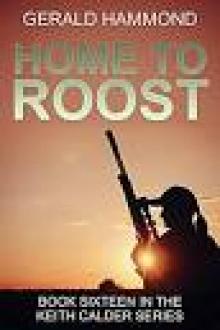 Home to Roost
Home to Roost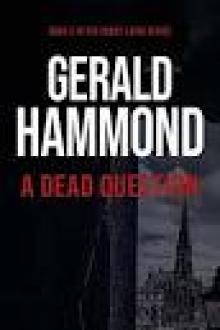 A Dead Question
A Dead Question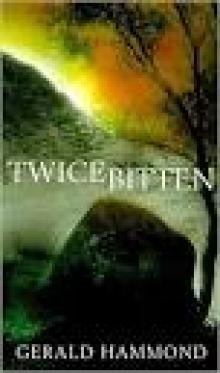 Twice Bitten
Twice Bitten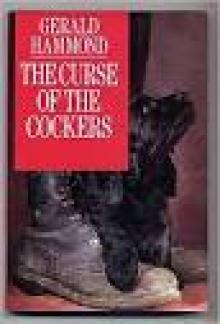 The Curse of the Cockers
The Curse of the Cockers In Loving Memory
In Loving Memory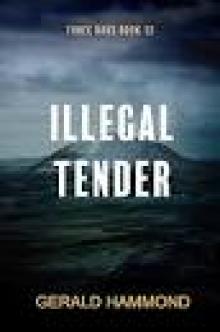 Illegal Tender (Three Oaks Book 12)
Illegal Tender (Three Oaks Book 12)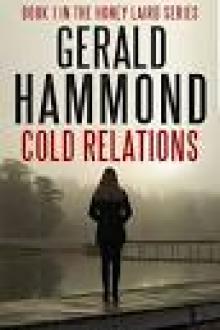 Cold Relations (Honey Laird Book 1)
Cold Relations (Honey Laird Book 1)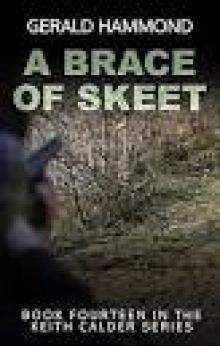 A Brace of Skeet
A Brace of Skeet Silver City Scandal
Silver City Scandal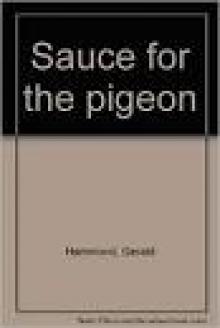 Sauce For the Pigeon
Sauce For the Pigeon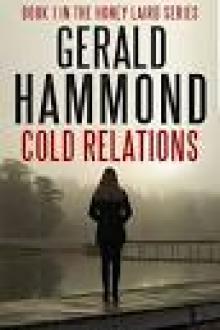 Cold Relations
Cold Relations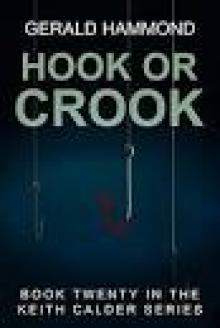 Hook or Crook
Hook or Crook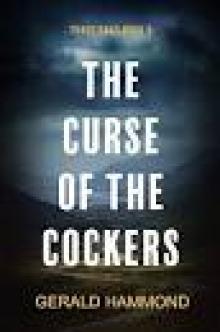 The Curse of the Cockers (Three Oaks Book 5)
The Curse of the Cockers (Three Oaks Book 5)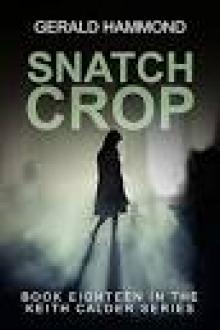 Snatch Crop
Snatch Crop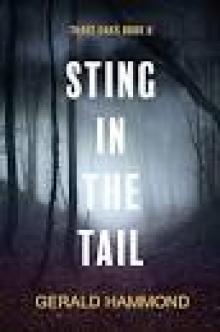 Sting in the Tail (Three Oaks Book 6)
Sting in the Tail (Three Oaks Book 6)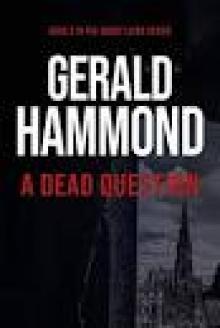 A Dead Question (Honey Laird Book 2)
A Dead Question (Honey Laird Book 2)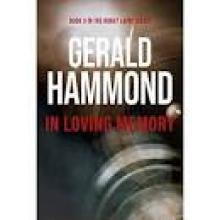 In Loving Memory (Honey Laird Book 3)
In Loving Memory (Honey Laird Book 3) Thin Air
Thin Air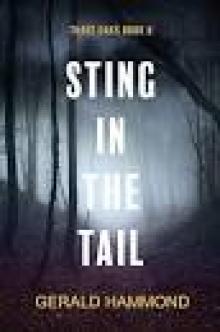 Sting in the Tail
Sting in the Tail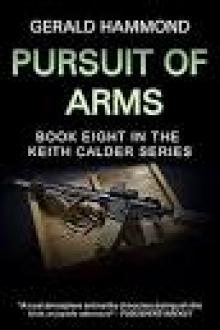 Pursuit of Arms
Pursuit of Arms The Game
The Game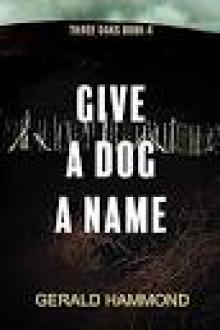 Give a Dog a Name (Three Oaks Book 4)
Give a Dog a Name (Three Oaks Book 4) Fair Game
Fair Game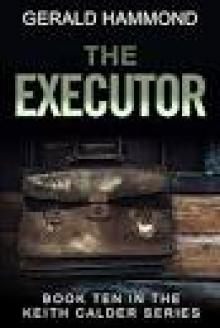 The Executor (Keith Calder Book 10)
The Executor (Keith Calder Book 10) Whose Dog Are You? (Three Oaks Book 2)
Whose Dog Are You? (Three Oaks Book 2)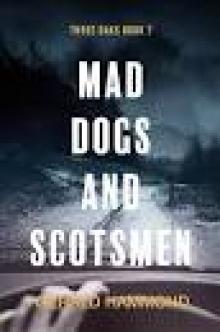 Mad Dogs and Scotsmen (Three Oaks Book 7)
Mad Dogs and Scotsmen (Three Oaks Book 7) Cousin Once Removed
Cousin Once Removed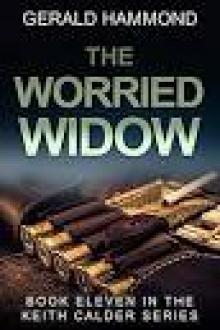 The Worried Widow
The Worried Widow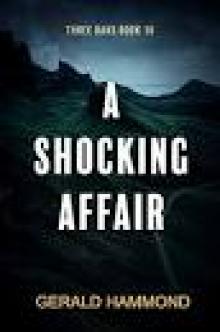 A Shocking Affair
A Shocking Affair Dead Weight (Three Oaks Book 11)
Dead Weight (Three Oaks Book 11) Whose Dog Are You
Whose Dog Are You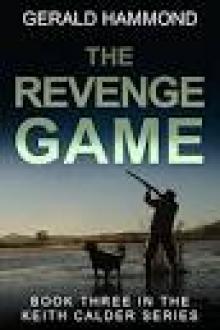 The Revenge Game
The Revenge Game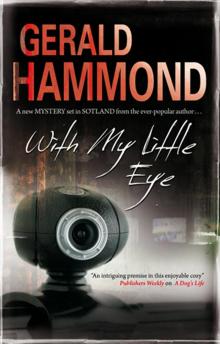 With My Little Eye
With My Little Eye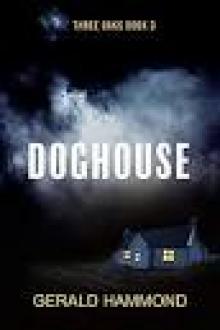 Doghouse (Three Oaks Book 3)
Doghouse (Three Oaks Book 3)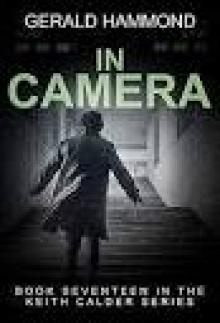 In Camera
In Camera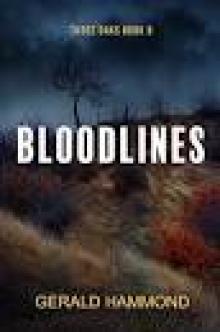 Bloodlines (Three Oaks Book 8)
Bloodlines (Three Oaks Book 8)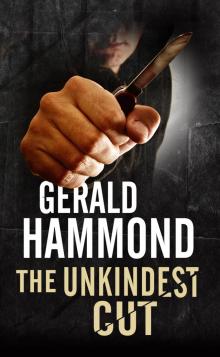 The Unkindest Cut
The Unkindest Cut